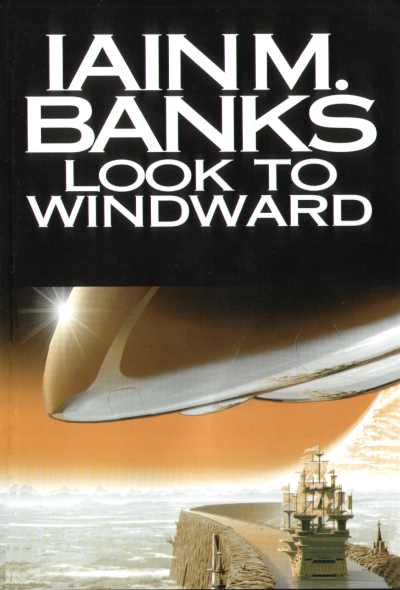
 Following up on my last post about artistic depictions of human life post-progress, the gentle reader is directed for his edification to our colleague Alan Jacobs’s New Atlantis essay on the “Culture” novels of Iain M. Banks. The novels are plainly meant first and foremost to be compelling science fiction, and Banks openly describes their universe as a sort of utopia in which he would gladly live (“Good grief yes, heck, yeah, oh it’s my secular heaven”) — but even so, Jacobs indicates that the problems of utopian alienation still crop up in characters “who try to restore unpredictability and drama to their lives”:
Following up on my last post about artistic depictions of human life post-progress, the gentle reader is directed for his edification to our colleague Alan Jacobs’s New Atlantis essay on the “Culture” novels of Iain M. Banks. The novels are plainly meant first and foremost to be compelling science fiction, and Banks openly describes their universe as a sort of utopia in which he would gladly live (“Good grief yes, heck, yeah, oh it’s my secular heaven”) — but even so, Jacobs indicates that the problems of utopian alienation still crop up in characters “who try to restore unpredictability and drama to their lives”:What I find fascinating about the anatomy of the Culture novels is the dissonance between Banks’s straightforward statements about the Culture and certain recurrent features of the stories he writes. Banks talks about how “nice” the Culture is, and yet we see hidden cruelties and open desires for universal domination. He clearly envisions the overcoming of scarcity as the signal achievement of the civilization made by the Minds, and yet he focuses time and again on objects of unfulfilled desire. He is aware that the very language of the Culture is a subtle but immensely powerful training in “correct” ideology.To some extent these oddities are … the inevitable consequence of the decision to write novels about the Culture. It is not possible to come up with stories as such about people who are perfectly nice and can have everything they want instantly. But one might also say that people of whom no stories can be told are not really people in any sense recognizable to us; and the lives that they experience are not lives in any sense recognizable to us.

Futurisms
March 11, 2010
The best crafted of the 'Culture' novels is probably Use of Weapons, although Look to Windward gives the fullest sense of Banks's technological, social, and moral vision.
I think the "Culture" novels are hard to read. I prefer Peter Hamilton's "Commonwealth" (Pandora's Star, Judas Unchained) and "Void" novels to be much easier and more enjoyable to read.
They are both outstanding writers/universes. If you like ether I also recommend Scalazi's "Old Mans War" trilogy.
The Culture can indeed be conceived as a sort of “computer-aided” anarchy. In this perspective, the Culture cycle can also be taken as a very interesting way to develop philosophical and political reflections on the potential role of “intelligent” machines in an advanced society: http://yannickrumpala.wordpress.com/2010/01/14/anarchy_in_a_world_of_machines/